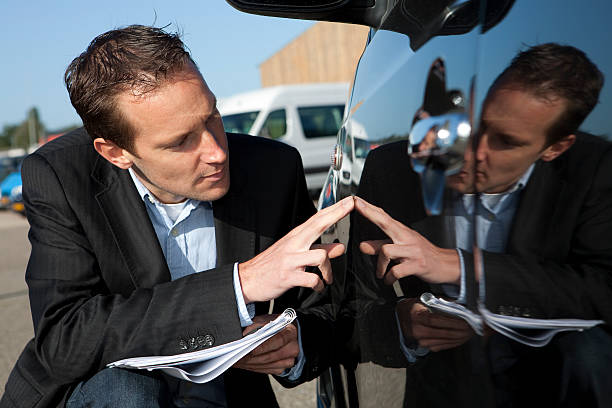Optar por um carro usado pode ser uma escolha financeira inteligente, pois permite economizar sem comprometer a qualidade e a confiabilidade do transporte. No entanto, é fundamental abordar essa decisão com cautela e um entendimento abrangente, garantindo que seu investimento resulte em benefícios duradouros. Este guia oferece dicas de especialistas para auxiliá-lo na jornada de compra, proporcionando a confiança necessária para que você faça uma escolha informada ao selecionar um veículo usado.
1. Buying a Used Car
Buying a used car has many advantages, such as lower upfront costs, less loss of value and possibly even lower insurance rates. But it’s important to be careful and do plenty of research to make sure you’re not buying a lemon.
2. Review your options
You should carefully research all your options before entering the market. Use the Internet to find websites and forums that list cars and discuss different makes and models that meet your needs. You may also want to visit dealerships and private sellers to inspect the car in person.
3. Create a bank account
When buying a used car it is important to have a budget. In addition to the purchase price, you also need to consider factors such as taxes, registration fees, insurance and maintenance costs. Understanding the total cost of ownership can help you create a reasonable budget and avoid overspending.
4. Read a vehicle history report
To find out more about your car’s past, you’ll need a vehicle history report. These reports contain detailed information about previous accidents, car owners, maintenance records and more. Reviewing this information will help you spot any red flags and make an informed choice.
5. Find bad car
When inspecting a used car, pay close attention to the interior and exterior. Check for signs of damage, rust or normal wear and tear. Also check mechanical components, such as the engine, transmission and suspension, for any problems.
6. Test the car’s performance
A test drive gives you the chance to see for yourself how well the car handles and drives. Test the car on different types of roads and at different speeds to see what it can do. Pay close attention to how the car responds to what you do and listen for any strange noises.
7. Professional
While your own opinion is important, having your car inspected by a professional mechanic can give you extra peace of mind. A thorough inspection can reveal problems that aren’t obvious at first glance, saving you a lot of money on future repairs.
8. Lower prices
Now that you’ve done your research and inspected the property, it’s time to discuss price with the seller. Be prepared to make a fair offer based on the quality and market value of the car. Report any problems discovered during the inspection to get a lower price.
9. Deal official
Once you agree to the price, carefully read and sign all documents required of you. Make sure the ownership transfer process is done correctly to avoid legal issues. You may also want to purchase a warranty to better protect yourself against unexpected repairs.
FAQs
1. Do you think it is better to buy from a dealer or from a private individual?
Each choice has pros and cons. Dealers may charge more, but they usually have better warranties and financing options. Private sellers may have lower prices, but cannot offer guarantees or help with financing.
2. What should a car history report tell me?
Pay close attention to the car’s accident history, who owns it, service and maintenance records, and any reported problems, such as salvage or flood damage.
3. If I buy from a dealer, do I still need to have it professionally inspected?
Although dealers typically perform their own inspections, it is still a good idea to have an inspection performed by a third party to ensure that the inspection is thorough and fair.
4. Can I negotiate the price of a used car?
In fact, negotiating price is a normal part of buying a used car. Use your research and inspection results to substantiate your offer.
5. What should I do if there is something wrong with the used car I bought?
If a problem arises shortly after purchasing a used car, you should contact the seller or dealer immediately
Conclusion
If you’re careful and do your research, buying a used car can be a rewarding experience. If you follow these tips from the experts, you can easily find a great car that suits your needs and budget.



